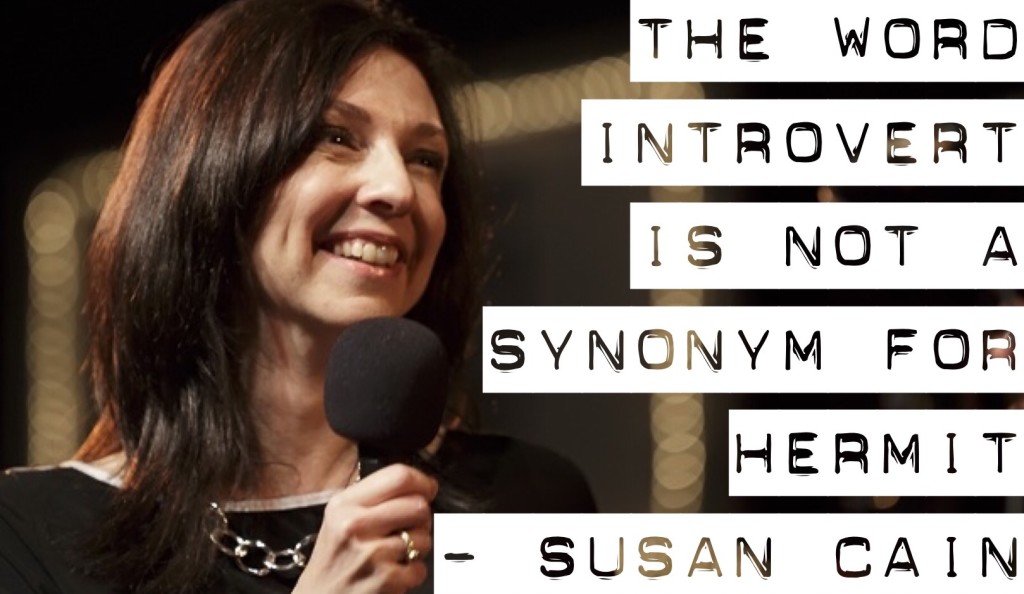
In an earlier post, I shared one of my most vulnerable, if not, the single greatest self-revealing moment of my life – it had to do with cream puffs, moms, and a caffeine addiction.
Without divulging that story again (since you can read it here), I wanted to revisit, in this post, why I acted the way that I did…
It’s because I was an introvert.
I remember studying all about this in my Psychology of Religion class – to be honest, it brings back both fond and confusing memories of reading Freud and Jung. But it wasn’t until I read Susan Cain’s Quiet, that I began to truly appreciate the spectrum of introversion-extroversion and why it mattered.
Cain explains the importance of this scale…
Our lives are shaped as profoundly by personality as by gender or race. And the single most important aspect of personality—the “north and south of temperament,” as one scientist puts it—is where we fall on the introvert-extrovert spectrum. Our place on this continuum influences our choice of friends and mates, and how we make conversation, resolve differences, and show love. It affects the careers we choose and whether or not we succeed at them. It governs how likely we are to exercise, commit adultery, function well without sleep, learn from our mistakes, place big bets in the stock market, delay gratification, be a good leader, and ask “what if.” It’s reflected in our brain pathways, neurotransmitters, and remote corners of our nervous systems. Today introversion and extroversion are two of the most exhaustively researched subjects in personality psychology, arousing the curiosity of hundreds of scientists. (Location 220)
So what are the differences between introverts and extroverts?
At a very general level, Cain describes the difference well…
Introverts…
- Are drawn to the inner world of thought and feeling
- Focus on the meaning they make of the events swirling around them
- Recharge their batteries by being alone
Extroverts…
- Are drawn to the external life of people and activities
- Plunge into the events themselves
- Need to recharge their batteries when they don’t socialize enough
“To be great is to be bold.”
This is a huge myth in our society and it’s called the Extrovert Ideal in Susan Cain’s Quiet, “The omnipresent belief that the ideal self is gregarious, alpha, and comfortable in the spotlight.”
We see the way that this myth has been perpetrated in our society…
- By the way that the home coming king and queen are the most popular and gregarious ones
- By the way that political elections seem to be won on charisma
- By the way that the main characters in our TV shows and movies seem to be comfortable in the spotlight – anyone remember Zack from Saved by the Bell? Jerry from Seinfeld? Or how about Phil from Modern Family?
Now I’m not saying that Jerry, Phil, or Zack are the ideal representatives of greatness (not that there’s anything wrong with them), but the fact is, you don’t need to be an extrovert to be a great leader! Jim Collins reputed this notion with his Level 5 Leader research in Good to Great.
According to Collins, Level 5 leaders are individuals in whom genuine personal humility blends with intense professional will. In other words, Collins discovered that bold, loud and gregarious personalities were not indicative characteristics for successful leadership.
After all, according to Cain, “some of our greatest ideas, art, and inventions—from the theory of evolution to van Gogh’s sunflowers to the personal computer—came from quiet and cerebral people who knew how to tune in to their inner worlds and the treasures to be found there.”
So, as an introvert, here are three things that I’ve been incredibly intentional with, in my pursuit to become a Level 5 leader:
[Read more…] about 3 Ways Introverts Can Become Level 5 Leaders